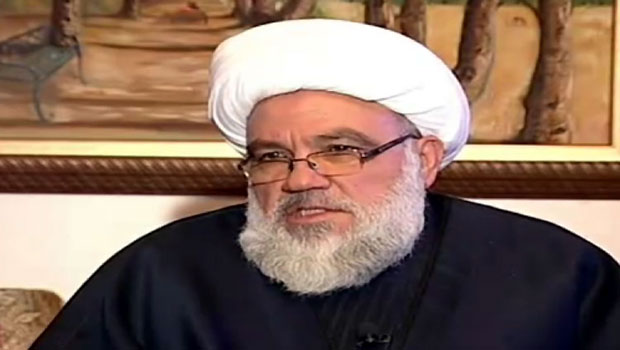“Iran and Hezbollah bear responsibility for every Syrian killed, every tree felled, and every house destroyed.”
This is not a quote from a Shi’ite leader calling for a review of Shi’a doctrine: it comes from Sheikh Subhi Al-Tufayli, a pillar of Hezbollah, one of its founders and its first secretary-general.
It is evidence of a deep intra-party dispute between Sheikh Subhi, Hezbollah and the Iranian regime. However, it was not an ideological dispute that urged Mr. Subhi to reconsider his religious doctrine, and consequently his political beliefs. He left Hezbollah as a result of his differences with the group, and once he did Mr. Subhi became a full-time preacher among poor Shi’ites in Baalbek and Hermel. He established Ein Bordai Hawza, a traditional religious school, in Beqa’a, Lebanon, where he still keeps a portrait of the Iranian revolutionary leader Ruholla Khomeini in his office.
The statements made by Sheikh Al-Tufayli are important because they come from an influential Shi’ite voice. Most of the ideas expressed by Tufayli have already been articulated by Arab politicians, intellectuals and writers, who have said that the support given by Iran and Hezbollah to Assad’s regime will take the region to the brink of a devastating sectarian conflict.
Unfortunately, however, we are always met with those who play the sectarian card. This is a rational warning and criticism of Iran and Hezbollah’s policy in Syria, coming from a Shi’ite figure who is highly regarded both as a scholar and as a politician. It should encourage the wise among Shi’ites to clearly and independently express their condemnation of Assad’s regime and fully recognize the Syrian people’s right to get rid of their bloodthirsty ruler. They need to pressure the Iranian government and discourage it from implementing its harmful policies, as Sheikh Tufayli has done.
They should do this not only to support the subjugated people in Syria, but also to protect the Shi’ites there who have been dragged by Iran and Hezbollah into an awkward situation with the country’s Sunni majority. Fair-minded Shi’ites who adopt the logical and rational stance of Sheikh Tufayli are acting in the interest of both Sunnis and Shi’ites in the region. Iranian policy, according to Tufayli, is the primary reason for unprecedented sectarian tensions in the Middle East. However, it is still possible to spare the region’s population—whatever their personal creed—from sectarian strife that will bring nothing but total destruction.
